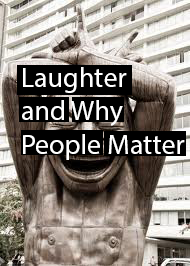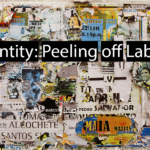Laughter and Why People Matter
In the last moments of your life, are you going to remember the times such as when you were stressed after your clothing was stained, when you broke/lost your phone, when you were worried about someone’s thoughts about you?* Or are these quite insignificant details that will be dispensed into the remnants of the past?
Are those recalled memories rather going to be those moments when your heart is racing and your stomach is full of butterflies? Those times when you felt chills all over your body and were moved to bouts of laughter and tears. Those instances when your voice was quivering and your hands shaking as you faced the struggles of hardship or pleasant surprises in life — the “key” decision-making moments that impacted your life more than you may have imagined and even recognize to this day.
When you seized the opportunity, had your heart broken, had your first kiss, lost a loved one, had your heart lifted by being told how appreciated you are, cried from a traumatic event, listened to a song that prompted you to sing it aloud, had the courage to speak your mind or take action (more on this subject in this blog post, met your husband/wife (or close friend) for the first time, saw someone you loved light up and smile thanks to your presence, etc.?
What will really matter among the seemingly infinite minutiae and memories that form the conscious experience in our lifespan?
I will quote this as it struck a chord and strongly resonates with me: “People matter. Everything else is just noise.” (from “The Gift” by Paul Buccheit)
The experiences you make with others have been shown through psychological research to bring about happiness (more on this subject in a past post here. Relatedly, exercising socially leads to increased satisfaction and stronger performance (endorphin spike brought on by laugher that increases pain tolerance levels). A study came to this conclusion regarding laughter and socializing:
“The results show that pain thresholds are significantly higher after laughter than in the control condition. This pain-tolerance effect is due to laughter itself and not simply due to a change in positive affect. We suggest that laugher, through an endorphin-mediated opiate effect, may play a crucial role in social bonding.”
This article, “Laughter as a Form of Exercise”, regarding the same study goes on:
“Laughter is an intensely infectious activity. In this study, people laughed more readily and lustily when they watched the comic videos as a group than when they watched them individually, and their pain thresholds, concomitantly, rose higher after group viewing.”
In short, we do better mentally & physically in the company of people.
The memories I shared with others — friends and strangers alike — in my trips around the world and in everyday life are more vivid and enjoyable for me to reflect upon than the location of the events in and of themselves. And seeing those who I have befriended on different occasions brings me great joy.
Appreciate the family and friends you have and make time for them. I would argue to remind oneself of what thoughts may come to mind on your deathbed as an indication of what may be important in life. After all, it is your well-being that is at stake in this life that we are so lucky/blessed/fortunate to live!
I’ll end with the following that I just read the other day (and I would add that is not widely taught in school):
“Life does not include a remote control. You have to get up and change it yourself.” (Source)
*I am not submitting that one disregard timeliness, care for their possessions, and others’ feelings. On the contrary, there are all important, especially in the present, but may overshadow the other facets of our life.
Related Posts




